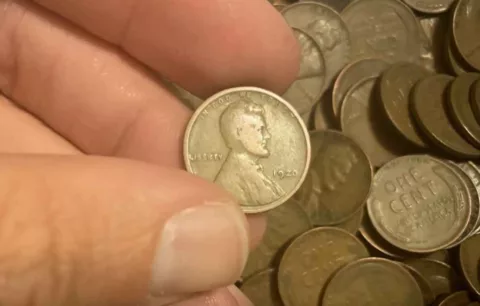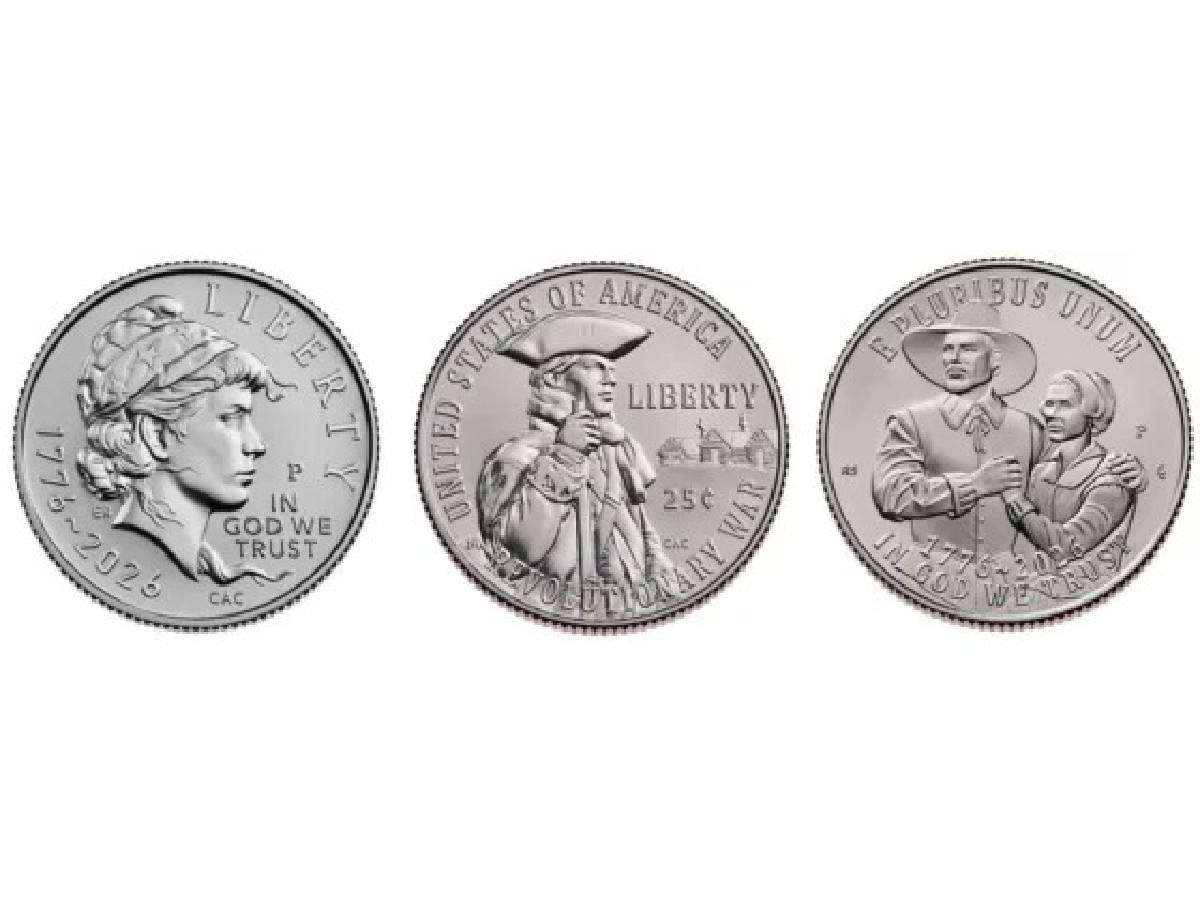
Found a 1920 penny and want to know what it’s worth?
I’m a longtime coin collector who has saved wheat pennies since the 1990s.
Today, I’m going to help you figure out the value of your 1920 wheat penny!
How Much Is A 1920 Penny Worth?
There are many factors that are used to determine how much an old penny is worth — including:
- The condition of your penny (circulated, uncirculated, proof)
- Where your wheat penny was minted (you can tell by looking at the coin’s mintmark)
- Whether your penny has any errors or varieties (I’ll tell you about a few in a minute)
The value of 1920 pennies ranges from only a few cents to a few thousand dollars. Here’s a rundown on what typical 1920 Lincoln wheat cents are worth:
- 1920 no mintmark penny (Philadelphia mint) — Values range from 15 cents to $1 in well-worn condition and $20 to $40 in typical uncirculated grades with chocolate-brown toning. Red mint state pieces range in value from $100 to nearly $10,000.
- 1920-D penny (Denver mint) — A 1920-D penny is worth 20 cents to $2 in well-worn condition and $70 to $250 for chocolate-brown specimens in typical uncirculated grades. Red uncirculated examples are worth anywhere from $150 to $20,000+.
- 1920-S penny (San Francisco) — A 1920-S penny in well-circulated grade is worth $1.50 to $7, while typical mint state pieces range in value from $125 to $500+. In red mint state, examples are worth $1,000 to $10,000+
What Is The Most Valuable 1920 Wheat Penny?
While the 1920 penny is common in worn (circulated) grades, it’s a pretty scarce coin in uncirculated condition.
The rarest 1920 wheat pennies are those that are in the highest grades and exhibit original red color. These super-nice pennies look pretty much like they did the day they were struck.
Because it’s so hard to find uncirculated 1920 Lincoln wheat cents that look brand new, they’re also extremely valuable.
In fact, the most valuable 1920 wheat penny sold was a 1920-S Lincoln cent graded by Professional Coin Grading Service as a MS-65 Red, which sold for $44,063 in July 2013. Now there’s a pretty penny, huh?
How Many 1920 Pennies Were Made?
The short answer? About 400 million!
Here are the exact mintage numbers by U.S. Mint facility:
- 1920 no mintmark penny (Philadelphia mint) — 310,165,000 minted
- 1920-D penny (Denver mint) — 49,280,000
- 1920-S penny (San Francisco mint) — 46,220,000
As you can tell by these numbers, the branch-mint 1920 Lincoln cents (those made at the Denver and San Francisco Mints) are the scarcest. This is the case for most of the years in the Lincoln cent series.
Lincoln cent enthusiasts regard all pre-1933 branch-mint Lincoln cents as relatively scarce. They are also much more difficult to obtain in the higher grades than similar specimens from the Philadelphia Mint.
How Much Are 1920 Error Pennies Worth?
Yes… there’s at least one type of 1920 doubled die penny known to exist.
It’s a 1920-S Lincoln cent exhibiting an extra eyelid for Lincoln.
This piece is not necessarily well known — therefore, its value wouldn’t be as strong as, say for a more popular error like the 1955 doubled die penny. But still, similar types of doubled die coins sell for anywhere from $50 to $200+, and it’s worth keeping an eye out for! (See what I did there?)
There are many other kinds of 1920 wheat penny errors to look for — including:
- 1920 off-center pennies — worth $5 to $250+
- 1920 pennies with die chips and die breaks — $5 to $100+
- 1920 “BIE” pennies errors — $7 to $25
- 1920 pennies with missing letters or design elements — $1+
- 1920 die cap pennies — $500+
I would encourage you to keep on the lookout for any unusual-looking pennies.
Just remember, not all odd-looking coins are errors — many of the strangest coins are really just coins that were damaged outside of the mint.
Still… there are several types of cool errors worth seeking. You might just hit it big by finding a rare 1920 penny error!
IMPORTANT: What Is The Grade Of Your 1920 Penny?
To determine the true value of your 1920 wheat penny, you first need to know what condition (or grade) your coin is in.
Grab a coin magnifier and a copy of the U.S. Coin Grading Standards book. Then, watch this video to see how to grade coins yourself at home:




